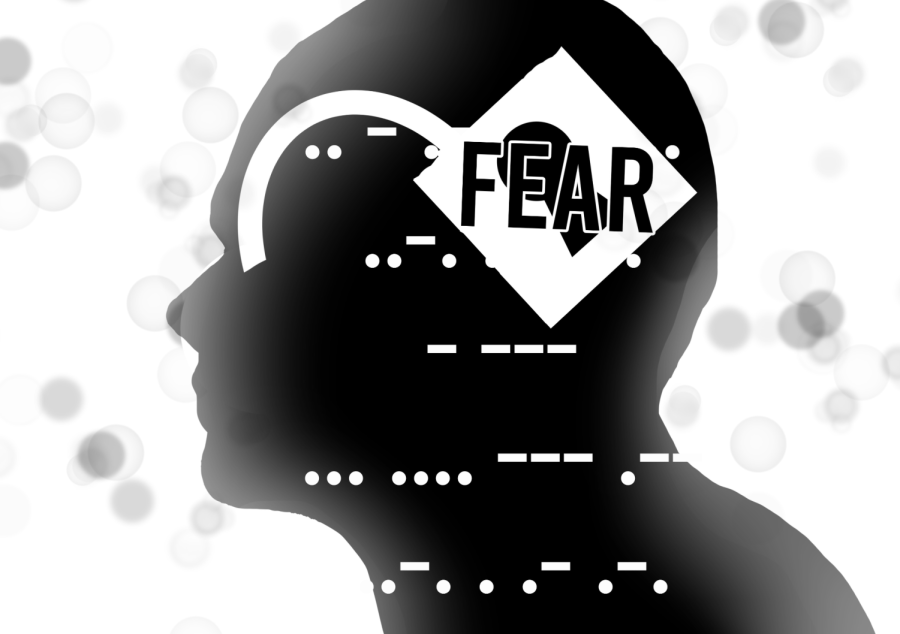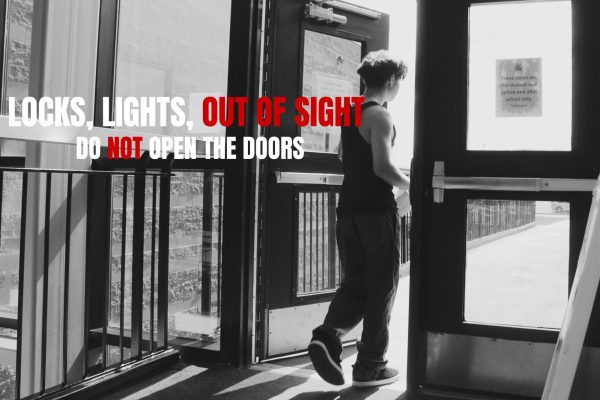Never Show Fear, or Should We: The Psychology Behind Embracing Fear
“Some of the times where I’ve grown the most, and I think in most people’s lives, is when you get out of that comfort zone,” Rios said. “You cause yourself to fear a little bit and understand that fear isn’t necessarily bad.”
Society tries to influence the behaviors of many. One that you made of heard or even internalized in your mind is the ideology to never to show fear.
Yet, based off our biology alone, this idea should be the furthest thing from our ideal behavior. Psychologically, the idea of never showcasing fear is unreasonable. It’s human nature to fear the things we don’t understand or like.
Whether we like it or not, fears can still affect our behavior, whether this spreads into our daily life, school, or work.
To understand why we shouldn’t be scared of displaying fear, we must comprehend what even is fear and why the reaction is in our human nature.
Fear can be grouped into three different categories. The first category is “rational fears.” Rational fears are explained as fears that are within reason. Examples include an immediate threat, fear of death, or the fear of losing a loved one.
Being afraid of spiders, snakes, or rats is called primal fear. With primal fears, you will notice that most will end with the word Phobia.
Research shows that around 19 million people have phobias ranging from less intense to severe.
Our brains naturally program primal fears, and we react to them more intensely.
Lastly, irrational fears, such as the fear of clowns, are categorized as irrational because we don’t have a reason to fear them, but we just do.
One-half of our brain doesn’t understand why we’re fearing, while the other half tries to convince us to be afraid of what we’re seeing.
A big part of why we fear and how we react to things that cause us to be afraid is due to our brain.
“The amygdala is responsible for big-time emotions like fear and anger. So when something frightens us, our amygdala kind of kicks on,” AP Psychology teacher John Rios said. “We then have to decide if this is something we should be afraid of, or if this is something we should flee from.”
Fear is an important part of the human experience and had been important to the survival of humans for centuries.
“It’s one of the most powerful emotions we have as human beings, and if we’re looking at, like an evolutionary psychologist would say, the whole goal of a human being is to survive and reproduce,” Rios said.
There are many psychological perspectives that professionals can look at fear through when it comes to why we are afraid. Evolutionary psychologists have an interesting way of looking at fears.
“Evolutionary psychologists argue that we fear because something threatens our survival or ability to reproduce,” Rios said.
However, many other perspectives can come into play when talking about fears.
“A behaviorist might argue that we fear because we have learned to fear,” Rios said. “We have learned fear, whether it’s through modeling or punishments.”
Alex Honnold is an American Rock Climber popular for free climbing and, most importantly, known for free climbing the El Capitan. He serves as a prime example of the human ability to push through fear.
“When they looked at his amygdala, his brain wasn’t registering,” Rios said. “Normally we would want [fear] to register.”
The whole point of fear is to keep us safe and protected from certain situations that we go through.
Yet, fears can influence us negatively, which can be seen in the world of sports.
Edgerrin James is an ex-football player who started off his career at the University of Miami, and because of his dreads and his gold grills, people began to fear him.
“When we fear the unknown, it causes us to be prejudiced and to have bad judgments and to not grow,” Rios said.
As humans, we must begin to allow fear to be in our emotions. It’s okay to fear the things we don’t understand, but don’t allow those fears of not understanding to affect your life negatively.
“Some of the times where I’ve grown the most, and I think in most people’s lives, is when you get out of that comfort zone,” Rios said. “You cause yourself to fear a little bit and understand that fear isn’t necessarily bad.”
Allowing yourself to fear can have a multitude of positive outcomes. All it takes is a step in the right direction to make a long-lasting impact in your life.
“Society should not tell us to not fear but [should say] that it’s okay to show your fear and also to understand that it doesn’t matter if I’m afraid, that doesn’t mean I’m gonna stop pushing forward and try and be better,” Rios said.

Grade:
I am in 11th grade.
Years on Staff:
This is my third year on staff.
What are you looking forward to most:
I am looking forward to teaching...







![A Vest Won’t Protect You [OPINION]](https://ghschronicle.com/wp-content/uploads/2025/09/KoltonZuckerVestPosterOffWhite-450x600.png)



